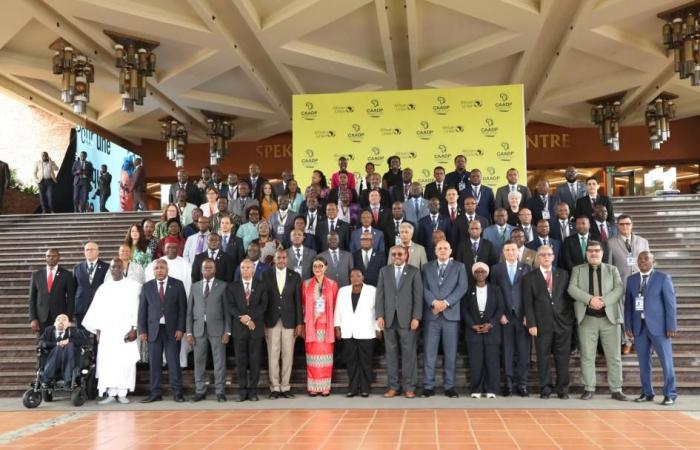The work of the Comprehensive Program for African Agricultural Development (CAADP) Summit concluded on Saturday with the adoption of the Kampala Declaration.
The event, which began Thursday under the theme “One Voice, One Earth,” brought together around 2,000 participants, including policy makers, representatives of civil society, as well as experts and scientists.
Morocco was represented at this summit by the Minister of Agriculture, Maritime Fisheries, Rural Development and Water and Forests, Ahmed El Bouari, at the head of a large delegation. This included in particular the Ambassador of Morocco to the United Republic of Tanzania and the Union of the Comoros, Zakaria El Goumiri, the Secretary General of the Department of Agriculture, Redouane Arrach, and the Director of Irrigation and of Agricultural Spatial Planning, within this department, Zakaria El Yacoubi.
At the end of the work, African countries adopted the Kampala Declaration, focused on the development of a resilient and sustainable agri-food system in Africa, as well as the ten-year strategy and action plan of the CAADP.
In this context, participants decided to intensify sustainable food production, promote agro-industrialization and strengthen trade.
By 2035, they committed to increasing agri-food production by 45%, reducing post-harvest losses by 50% and tripling intra-African trade in agri-food products and inputs.
To achieve these goals, the Kampala Declaration calls for the establishment of an enabling policy and regulatory environment, as well as the integration of new emerging technologies, such as biotechnologies, artificial intelligence and digitalization.
Countries also committed to stimulating investments and financing for the accelerated transformation of agri-food systems. To this end, a total of $100 billion will be mobilized in the form of public and private investments by 2035.
The Declaration also aims to reduce by 50% the number of people living in extreme poverty in Africa.
Furthermore, African countries were called upon to integrate these commitments into their national policies, strategies and budgets for effective implementation, while a call was made to African farmers to adopt innovative practices and emerging technologies, in order to to develop the productivity, sustainability and resilience of the agricultural sector.
With MAP






